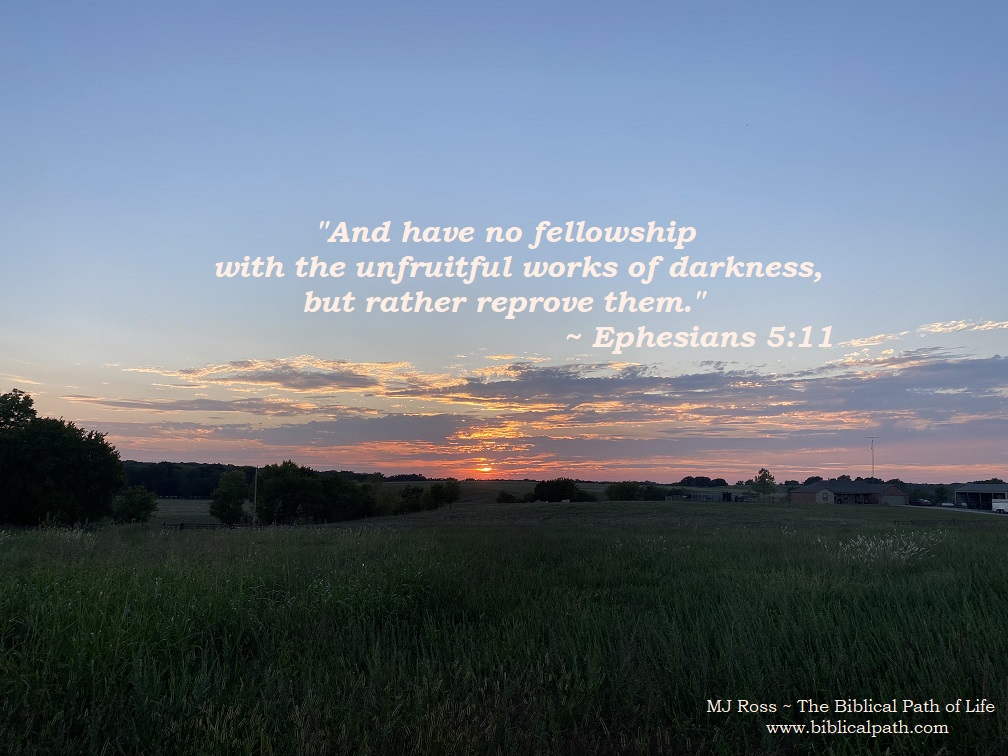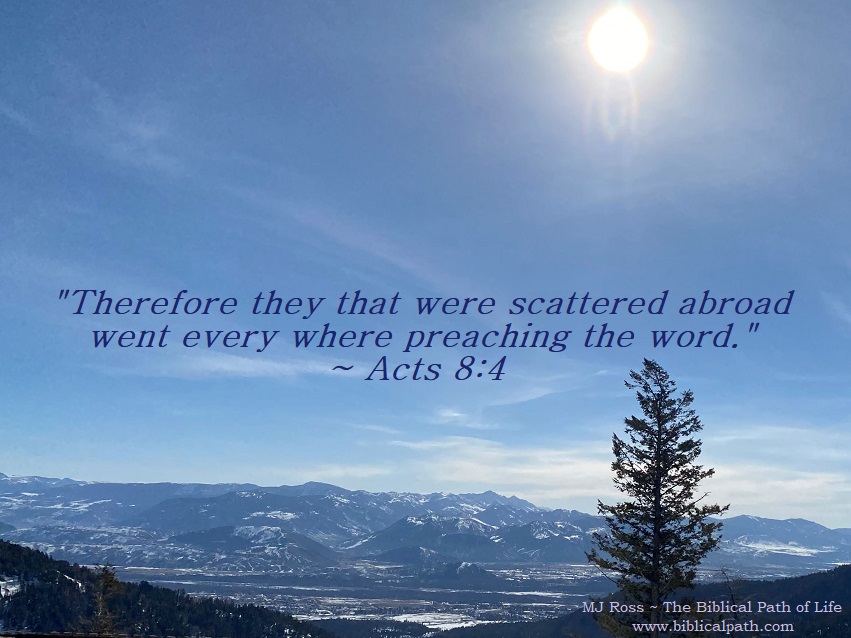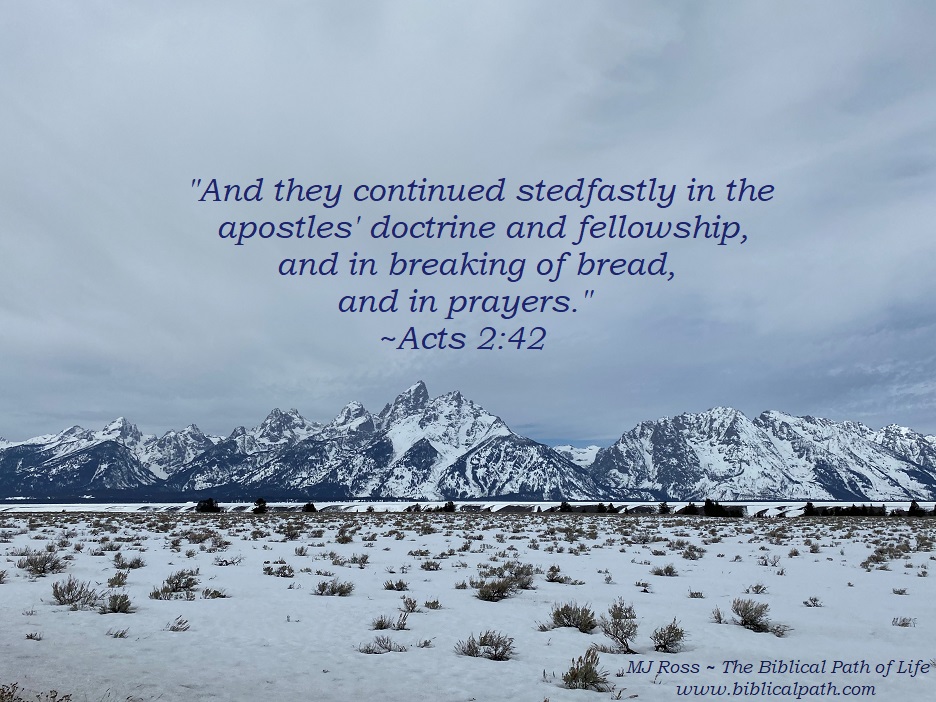
“And have no fellowship with the unfruitful works of darkness, but rather reprove them.”
Ephesians 5:11
Jehoshaphat was a good king in Judah. He sought to the Lord God of his father, and walked in His commandments (see 2 Chronicles 17:4). Read the description of his heart. “And his heart was lifted up in the ways of the LORD: …” (2 Chronicles 17:6a). Notice that his heart was “lifted up” in the ways of the Lord. He strengthened the cities of Judah – physically and spiritually. By placing mighty soldiers in the different cities, he strengthened them physically. When he sent princes, priests, and Levites into every city teaching the Word of God to the people, he strengthened them spiritually (see 2 Chronicles 17:7-9). Recognize what happened after the people were taught the Word of God: “And the fear of the LORD fell upon all the kingdoms of the lands that were round about Judah, so that they made no war against Jehoshaphat” (2 Chronicles 17:10). When they honored God, learning His Word, God put fear upon the nations around – and there was no war, just peace. This was all good.
We read something very interesting in 2 Chronicles 18: “Now Jehoshaphat had riches and honour in abundance, and joined affinity with Ahab” (2 Chronicles 18:1). Joined affinity means “to give (a daughter) away in marriage; hence (generally) to contract affinity by marriage”. Jehoshaphat’s son married Ahab’s daughter. “And after certain years he went down to Ahab to Samaria. …” (2 Chronicles 18:2). It is interesting to note that earlier we read that Jehoshaphat’s heart was “lifted up in the ways of the LORD”, and shortly thereafter we read that “he went down to Ahab”. Remember the description we have of Ahab: “30. And Ahab the son of Omri did evil in the sight of the LORD above all that were before him. 31. And … he took to wife Jezebel … and went and served Baal, and worshipped him. 32. And he reared up an altar for Baal in the house of Baal, which he had built in Samaria. 33. … and Ahab did more to provoke the LORD God of Israel to anger than all the kings of Israel that were before him.” (1 Kings 16:30-33). Jehoshaphat should never have become involved in the life of King Ahab in any way. He went from being “lifted up” to going “down” to meet with Ahab. We are warned often in the Bible to not do this. Read just a couple of verses that he should have heeded:
- “Blessed is the man that walketh not in the counsel of the ungodly, nor standeth in the way of sinners, nor sitteth in the seat of the scornful” (Psalm 1:1).
- “I have hated the congregation of evil doers; and will not sit with the wicked” (Psalm 26:5).
Amazingly enough, King Jehoshaphat appeared to have kept his heart pure before the Lord – even with the relationship he had with wicked King Ahab, the worst king of Israel. However, we can read the devastating effect it had upon his children and the nation of Judah. Not only did his son marry wicked King Ahab and Jezebel’s daughter, Athaliah, but she ended up killing almost all of her grandchildren to take the throne of Judah (see 2 Kings 11:1-3).
Relationships like these are recorded in the Bible so that Christians, today, can learn from them. Remember what King Jehoshaphat did a few times. Something of which we are today warned. “Be ye not unequally yoked together with unbelievers: for what fellowship hath righteousness with unrighteousness? and what communion hath light with darkness?” (2 Corinthians 6:14). According to what we read today, King Jehoshaphat should not have had any dealings with the wicked kings of Israel. All it caused him was grief and troubles.
We have the following verse to help us: “Be not deceived: evil communications corrupt good manners” (1 Corinthians 15:33). Use the following definitions to better understand this verse:
- deceived means “to be misled or deceived”
- evil means “evil works”
- communications means “lifestyles, conversations”
- corrupt means “to spoil or violate in a spiritual or moral sense”
- good means “in a moral sense – good, useful, virtuous”
- manners means “morals or character – this is the word from which ethics is derived.”
After reading these definitions, we can understand this verse is a warning to not be deceived but to understand something – evil deeds and conversations will spoil good morals and good character in a person’s life. We can also understand that we are to be very careful about the kind of people with whom we have dealings, and especially to be careful of those that we choose as friends.
“And have no fellowship with the unfruitful works of darkness, but rather reprove them” (Ephesians 5:11). Christians are to be set apart from the wicked things (and even people) of this world. We may not think these things affect us, but at the very least, it has an effect upon the people around us.
Nevertheless, see what we are exhorted to do in the following verse: “Awake to righteousness, and sin not; for some have not the knowledge of God: I speak this to your shame” (1 Corinthians 15:34). Often it is because of the choices and friends we make that keep us from being a good witness to others. It is a shame when Christians’ lives are contrary in any way to God’s Word. It is worse when Christians are the ones keeping others from the knowledge of God (allowing them to recognize their need for Jesus).
Have you chosen to not go down into the unfruitful works of darkness, instead allowing your heart to be lifted up in the ways of the Lord?


